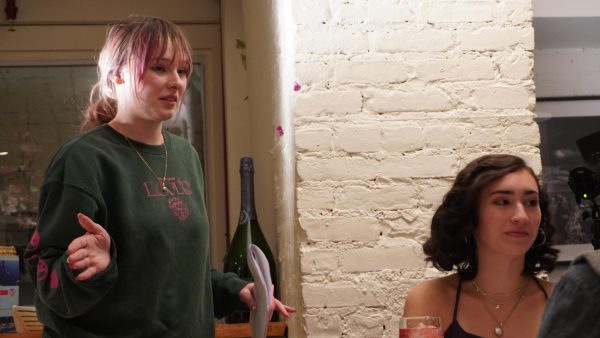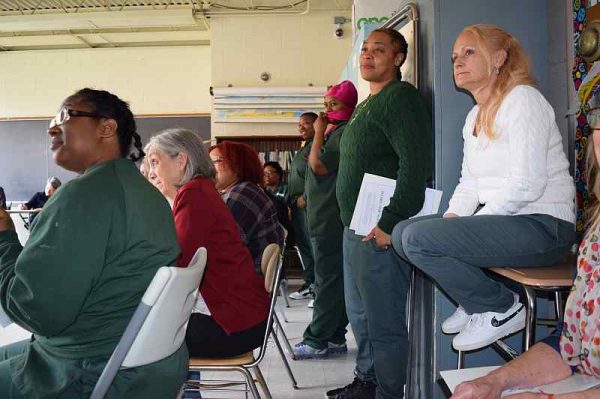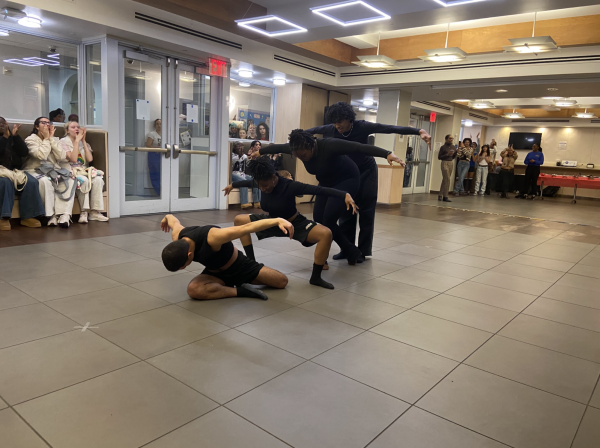Student Internships
How to Gain Job Experience in College
There are many opportunities and experiences that we as students are excited to take advantage of during our time in college. Studying abroad, living in New York City, internships, fellowships, and more. While these are all amazing opportunities, many of us get so busy wrapped up in schoolwork, part-time jobs, and clubs that we never get around to doing as much as we would like to do. Before we know it, we’re a semester away from graduating and very much freaking out about post-grad life, at least in my case. If I don’t have some direction of what to do before I’m inevitably kicked out of the Cooper Square dorms for, well, graduating then I’m SOL.
In the face of applications and rejections, it can seem like everyone else is thriving. It can be difficult to refrain from comparing yourself to other students, especially when you see those students posting about the amazing new opportunity they’ve been granted. In the wake of rejection, the first thought is often, “what did I do wrong?” While there may be room to improve, and reaching out to seek feedback is always a good idea, sometimes it wasn’t necessarily anything an applicant did wrong. A panel organized last month by the Communication Arts department, “Networking Your Way to a Career”, featuring recent graduates of Marymount who spoke about their experiences during their time in school and post-grad. Members of the panel spoke about their frustrations with “must hire” lists, which consist of a list of names that companies must hire for that semester or position, which snatches up valuable intern spots that applicants may not be aware of.
The members of the panel were only about one to two years post-grad, yet they all had good jobs at legitimate companies. While this provided hope that someone could potentially get a job after graduating from Marymount, the members of the panel also voiced their hard work in getting there. Panel members were all very involved in school as well as worked multiple internships prior to employment. Paige Gawley, who is now a staff writer at Entertainment Tonight, talked about the pressure she felt in getting internships, even as she worked more than three in her time at Marymount.
The pressure to find good internships within Marymount is fierce. It also fuels an underlying competition that often goes unspoken. In speaking with students about the subject of this article, I unintentionally came across a student who had recently been accepted to the internship I had just been rejected for. While this was the first time I had applied for the internship, it was the third time this student had applied. Attending a school in the city, not only are we are competing against each other as well as other students from schools in the city but students from outside the city who may be spending a semester in New York as well.
While we’re so busy scrambling to build our resume and grab as many internships as possible, we rarely stop to ask the question, “Is this even worth it?” The concept of internships in itself is complicated. While it’s been repeated to us from day one of college that internships are necessary for success, they are also often overhyped. It can be difficult to gauge from an application or interview if an internship experience will be worth your time and effort. After all, you would be giving this company 2-3 days a week of your time, as well as commuting, in the midst of classes, clubs, and perhaps a part-time job as well. Every aspect of students’ lives expects to be a priority, when the reality is that we’re juggling multiple “priorities” all at once.
A majority of internship strife stems from unpaid internships. It’s frustrating to come across an internship that “prefers part-time” status or requires 2-3 days, and yet is unpaid. Many internships consist of the equivalent of contract or freelance work. Tristan Spicer, senior, recalls an internship in which he was essentially thrown into the company to produce social media content, “I just produced great results so nobody asked questions.” Ideally, an internship would consist of one or more professionals in the field mentoring you, not necessarily using you for coffee runs and to pick up their slack.
Unpaid internships close the door to a lot of students, setting them at a disadvantage come hiring time. Paid internships often require internship experience, meaning a student would need to work one or multiple unpaid internships before they start being compensated for their skills, which is another thing that is frustrating to students. “I will get experience working for you,” expressed Lexi Button, a theatre producing and management major here at Marymount. By only offering unpaid internship positions, employers are really cheating themselves out of diverse and hardworking interns.
Andrew Simmons, owner of Emphasis Design inc. doesn’t believe in unpaid internships. He expressed that if an intern is working on a project or account that will ultimately make the company money, they deserve to be compensated. Alluding to the fact that most internships are unpaid contract labor. Internships that are paid and offered to students post-graduation can sometimes be a good transition period from student to employee if employment is offered at the end of the internship. However, it can also be a strategy for companies to receive entry-level work without having to commit to hiring new employees. If an intern doesn’t receive a job offer post-internship, they’re back to the drawing board.
As disappointing as some internship experiences can be, there are valuable internship experiences that can prepare you for your chosen field. As working an internship is a requirement for many majors, I would urge students to be selective in accepting one that will provide adequate compensation as well as experience that relates to their major. For more information regarding student internship resources contact Career Services at [email protected].

Class of 2020
Madeline Nortz is a senior majoring in Strategic Communications and Public Relations with a minor in Digital Journalism. She previously...





